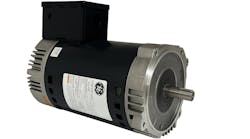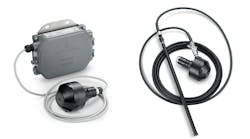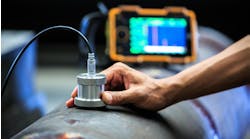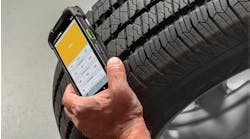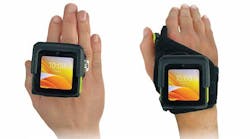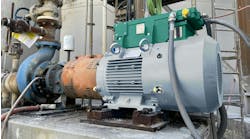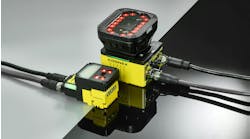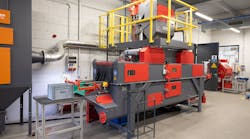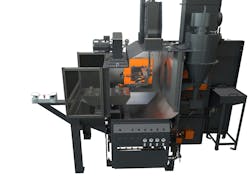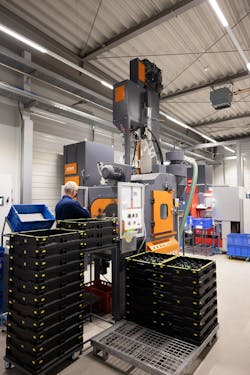Perfectly Deflashing Injection Molded Components
Ever since ROS GmbH & Co KG was founded in 1926 the processing of plastic materials was always at the center of the company’s activities. Initially named Press plant ROS, the company now has a nearly 100-year-old tradition in this field. Today the private business, managed by third-generation family members, is a high-end partner for technically demanding injection molded components made from duroplast and thermoplast materials including polyphenylene sulfide (PPS).
Product development, tool making, and production take place at the company’s headquarters in Coburg, Germany. An additional manufacturing plant is located in Ummerstadt in the German state of Thuringia. For removing the flashes on the components created by the manufacturing process, the company has been working with Rösler shot blast equipment since 2006.
Increasing Shot Blast Capacity
Jürgen Bär, responsible for planning in the industrial engineering department at ROS in Coburg explains, "The demand for plastic components substituting metal parts, for example in thermo management systems for the automobile industry, has been rapidly growing. In 2021 this forced us to increase our shot blasting capacity at both of our manufacturing locations. The plastic components reduce the overall weight of the cars and, therefore, help to reduce CO2 emissions. In addition, we received large orders for duroplast preformed components, among others from a leading manufacturer of garden tools.“
After discussions with four shot blast equipment suppliers, ROS chose the wire mesh belt machine RSAB 470 and the swing satellite table machine RWS 1200 from Rösler.
"The deciding factors for choosing Rösler were our good experience with the shot blast machines we have been using for a long time; the compact, space-saving, and sturdy equipment design; and Rösler’s comprehensive knowledge in the field of plastic deflashing. Moreover, we needed the continuous flow shot blast machine quickly. Rösler generously supplied a machine from their customer experience center within a few days," says Bär.
Energy-Efficient Deflashing in the Tempering Frame
The flexible high-capacity shot blast machine RSAB 470 at the Coburg location is used for deflashing components made from duroplast and high-performance thermoplast PPS-GF materials.
After deflashing, the components undergo a tempering treatment. For this purpose, the components are placed on special frames. Normally the workpieces are placed individually on the wire mesh belt. To streamline the material handling operation and eliminate this time-consuming step, Rösler adapted the standard workpiece transport system of the shot blast machine to the workflow at ROS. This redesign allows the raw components to be placed on the tempering frames immediately after the injection molding process. The workpieces on the frames are then passed through the shot blast machine for the deflashing operation and can be directly transferred to the tempering station.
Four turbines, specially designed for plastic deflashing and placed above and below the wire mesh belt, ensure consistent shot blasting results. This turbine arrangement allows throwing of the media consisting of polyamide grains with a diameter of 0.04 inches (1 mm) onto the workpieces from above and below.
Compared to the normally used suction air blast systems, the turbines, which are equipped with electric drives, are more energy efficient. "Not only [does] our certification, per DIN EN 50001, demand a reduction of energy consumption, but energy savings are also necessary to save costs and for reasons of sustainability," says Bär.
A blast media flow control with automatic media replenishment ensures that there is always sufficient blast media available in optimal quality. The shot blast machine is equipped with numerous technical features such as the anti-static compound dosing system with automatic compound replenishment, efficient air extraction from the blast chamber, the dual step parts cleaning system in the outlet zone, and the effective blast media cleaning system with screen and air wash separator.
All these features guarantee that the components coming out of the shot blast machine are perfectly deflashed and clean. Since the plastic materials used at ROS and the polyamide blast media can cause explosive dust, the shot blast machines were equipped with special, ATEX-compliant filter systems.
Automatic and Sustainable Deflashing
The RWS 1200 was installed to increase the shot blasting capacity at the plant in Ummerstadt. It's used for deflashing components made from PPS-GF and outer dimensions of up to 6 inches (163 mm).
In line with the production cycle of the injection molding machine, up to four workpieces are deflashed simultaneously within a processing time of 40 seconds. The RWS 1200 has two chambers, equipped with four rotary satellite stations per chamber, and each satellite holds one workpiece.
This design allows workpieces to be unloaded/loaded in one chamber, while the workpieces in the other chamber are processed, minimizing downtime. One energy-efficient blast turbine throws the media onto the workpieces placed on the rotary satellite stations arranged in the shape of a diamond. The satellites are not only rotating but, depending on the workpiece geometry, can also be stopped at a certain angle.
Workpiece areas that cannot be reached by the media thrown by the turbine are cleaned with special air blast nozzles. This suction air blast system has pressure control and a vertically moveable nozzle holder ensuring precise deflashing. In addition to the vertical movement, a linear positioning system allows the nozzles to be precisely placed in front of the workpieces, where they move in either oscillating or static modes.
"To minimize the usage of compressed air, we are working with workpiece-specific PLC processing programs," concludes Bär.
The RWS 1200 also features automatic replenishment devices for the blast media and the anti-static compound, an air extraction unit for the blast chamber, and a blast media cleaning system.
